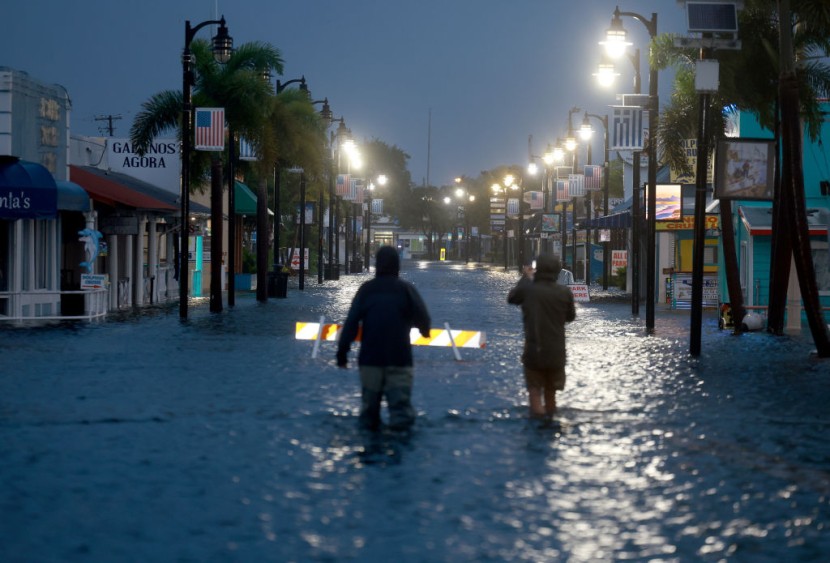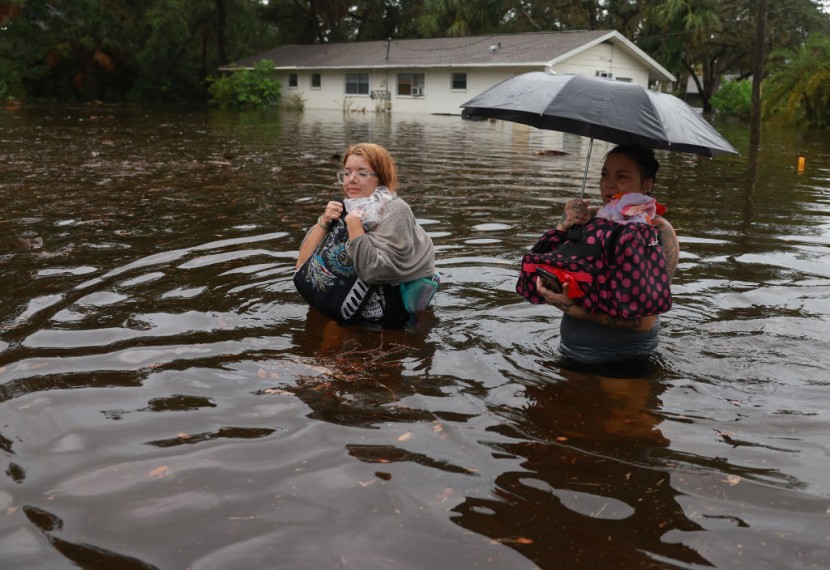Hurricane Idalia hit Florida, causing serious damage in the U.S. state.
The cyclone made landfall in Florida as a Category 3 hurricane, hitting the town of Keaton Beach and tearing through Georgia and the Carolinas.
Although the hurricane had already moved out to the sea, experts warned Florida's residents about the floodwaters it created.
Hurricane Idalia's Floodwaters Could Contain Flesh-Eating Bacteria

Florida Health Department Press Secretary Jae Williams warned residents about the rare flesh-eating bacteria that Hurricane Idalia's floodwaters could contain.
The official said that people should not take deadly bacterium lightly.
"It needs to be treated with proper respect - the same way we respect alligators and rattlesnakes," explained Williams via NBC News.
The press secretary stated that other Florida health officials already issued a warning for the potential bacterial infections caused by the flesh-eating bacterium as soon as the state of emergency was declared.
They said that the Carolina and Georgia areas of the state where the hurricane left standing water were most at risk of the flesh-eating bacteria.
Read Also : Hurricane Idalia Making Landfall in Florida; Governor Ron DeSantis Declares Statewide Emergency
How to Stay Safe From Flesh-Eating Bacteria

CNN Health reported that flesh-eating bacteria (Vibrio vulnificus) usually live in coastal waters.
The deadly bacteria proliferate in warmer months when ocean temperatures are at their warmest. Sea creatures in infected oceans can definitely contract the bacteria.
Because of this, people are usually infected by eating undercooked or raw seafood.
Experts also said that the coastal waters can also be forced inland by hurricanes, such as Hurricane Idalia. This means that the flesh-eating bacteria can also be brought into floodwaters.
They added that when people have wounds (scrapes, minor cuts, tattoos, or new piercings), they can get infected with the flesh-eating bacteria once they partially/fully submerge themselves in floodwaters.
In 2022, when Hurricane Ian hit Florida, health officials said that over 30 individuals were infected by the Vibrio vulnifucus; 11 individuals died due to the flesh-eating bacteria.
If you are living in Florida's areas with floodwaters, then there's only one thing you can do: cover your wounds.
Health experts said that people should cover their wounds completely before entering floodwaters.
"You really want to try to protect yourself and not expose yourself to water in those cases," said Dr. Rachael Lee, an associated professor at the University of Alabama Birmingham.
But, if you don't have any wounds, Dr. Lee said you are completely safe from flesh-eating bacteria infection.








